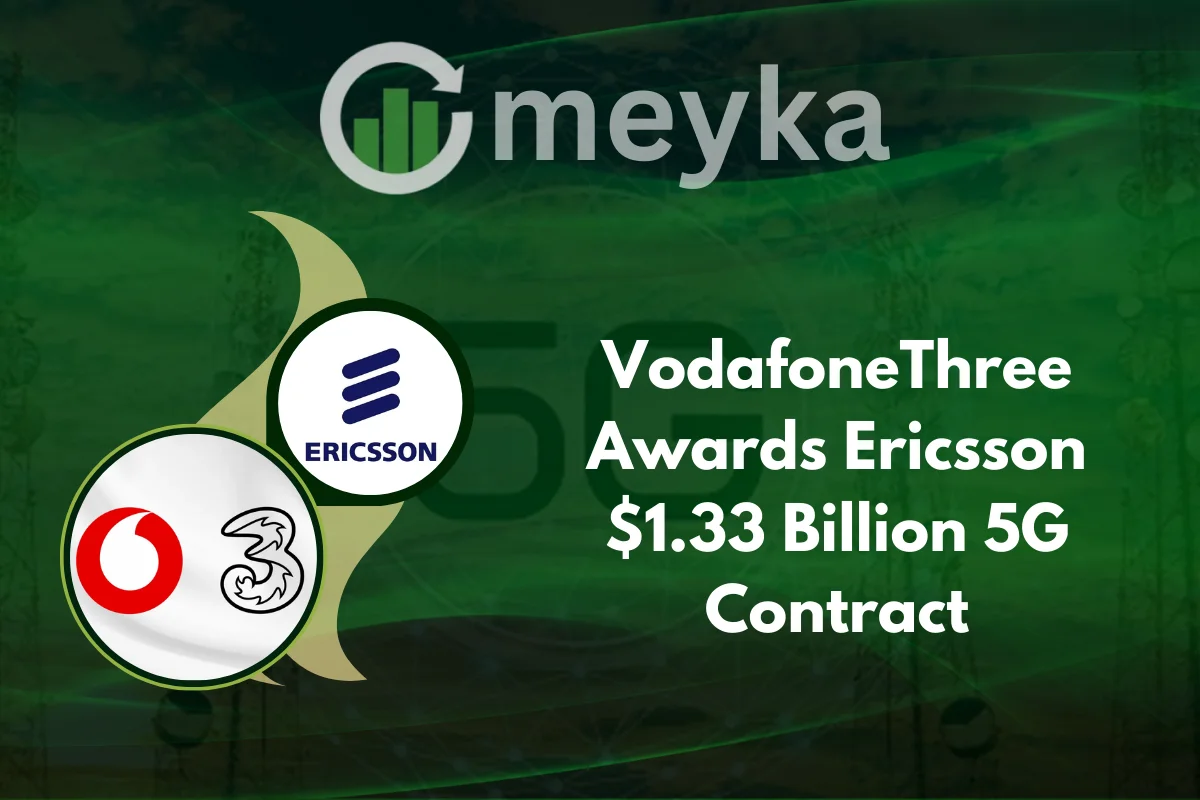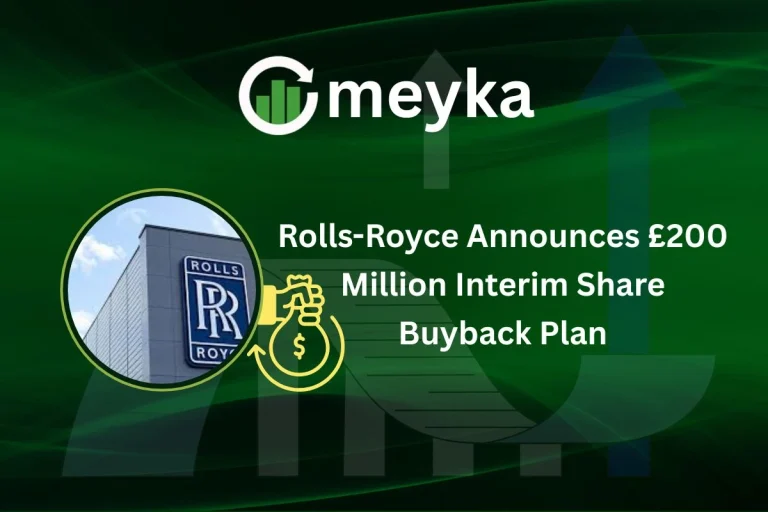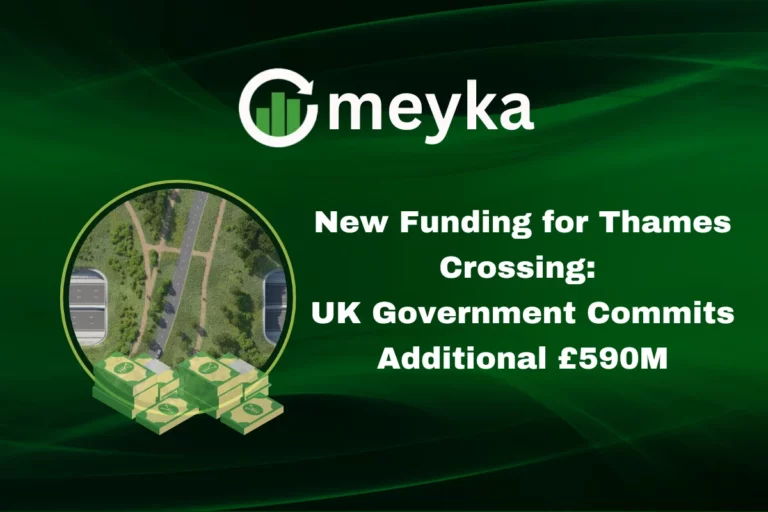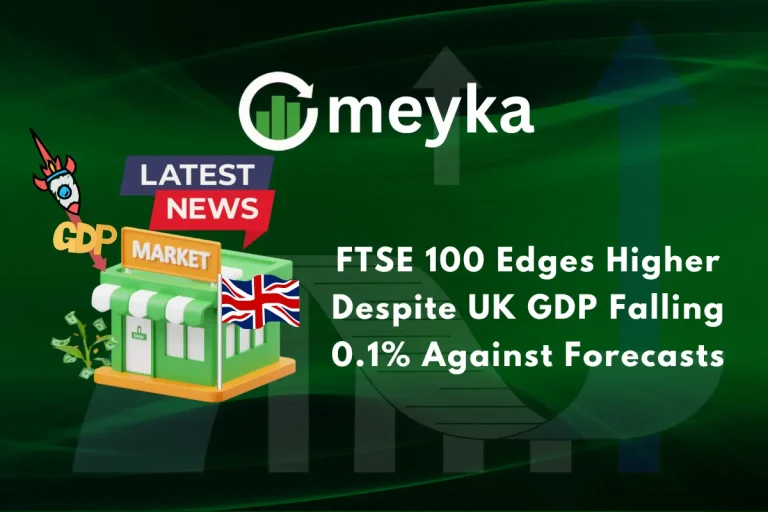VodafoneThree Signs $1.33 Billion 5G Deal with Ericsson
VodafoneThree, the UK telecom company formed from the merger of Vodafone UK and Three UK, has entered into a landmark agreement with Ericsson to deliver next-generation 5G infrastructure. The contract, valued at about $1.33 billion, marks one of the largest investments in the UK’s telecom industry.
The partnership will focus on deploying state-of-the-art 5G Standalone (5G SA) networks across the country, setting the stage for faster connectivity and more advanced digital services.
Details of the Agreement
The eight-year contract with Ericsson involves the rollout of both the radio access network (RAN) and core network systems. Ericsson will oversee more than 10,000 sites, primarily in major metropolitan areas including London, Edinburgh, Cardiff, and Belfast. The rollout will also extend to regional hubs such as Leeds, Sheffield, Aberdeen, Hull, and Bournemouth.
Alongside Ericsson, Nokia will manage around 7,000 sites. Together, the two technology leaders will help VodafoneThree modernise more than 17,000 sites across the UK. This initiative is part of VodafoneThree’s wider £11 billion investment plan aimed at making the country one of Europe’s most advanced digital economies.
The Role of 5G Standalone Networks
Unlike earlier versions of 5G that relied on 4G cores, 5G Standalone (SA) operates on a fully dedicated core. This allows for:
- Ultra-low latency is essential for applications such as autonomous vehicles and smart manufacturing.
- Higher reliability to support critical services in healthcare, finance, and emergency response.
- Network slicing enables customised virtual networks for different industries.
- Improved energy efficiency is crucial in today’s sustainability-driven economy.
Ericsson’s solutions will provide the foundation for a more intelligent and programmable network, supporting the growing demand for AI integration, IoT devices, and data-intensive services.
Economic and Social Impact
The contract is expected to bring significant benefits to the UK economy:
- VodafoneThree estimates the investment could add more than £100 billion in economic value between 2025 and 2035.
- The project will help create around 13,000 new jobs across engineering, construction, and technology sectors.
- Regional areas beyond London will gain improved connectivity, supporting digital inclusion and local business growth.
By strengthening 5G access nationwide, VodafoneThree is laying the groundwork for broader innovation in areas such as smart cities, energy management, and advanced digital health services.
Why Ericsson Was Chosen
Ericsson’s proven track record in delivering large-scale telecom projects and its leadership in energy-efficient, AI-ready technologies were key factors in securing the contract. The company’s radio systems, smart antennas, and network software are designed to handle the growing demands of 5G with minimal energy consumption.
This partnership also enhances Ericsson’s visibility in the global market, especially among investors tracking telecom and AI stocks. The agreement strengthens Ericsson’s position in a competitive industry, where long-term contracts provide stability and growth opportunities.
Challenges Ahead for VodafoneThree
While the deal represents progress, VodafoneThree faces several challenges:
- High Capital Costs – Rolling out nationwide infrastructure requires careful cost management to ensure profitability.
- Regulatory Oversight – The company must comply with UK policies on network security, energy use, and rural access.
- Rapid Technological Change – As network technologies evolve quickly, VodafoneThree will need to keep upgrading its systems to remain competitive.
- Integration Risks – Following the Vodafone and Three merger, harmonising systems, teams, and customer bases will be critical.
Consumer Benefits from the 5G Expansion
For everyday users, the benefits will be immediate and visible:
- Faster download and upload speeds, supporting seamless video streaming, online gaming, and remote work.
- Stronger coverage in urban centres and eventually in rural communities.
- New digital services, including VR/AR applications, real-time AI assistants, and smarter home connectivity.
Enterprises will also gain from customised network solutions designed to meet sector-specific needs, enabling industries such as manufacturing, logistics, and healthcare to operate with higher efficiency.
Implications for Investors and the Stock Market
From a stock research perspective, this contract boosts confidence in Ericsson’s growth outlook, reinforcing its role as a leading telecom and AI stock. The long-term deal provides revenue visibility while showcasing its ability to deliver high-quality solutions in competitive markets.
For VodafoneThree, the heavy investment signals a bold move to reshape the UK telecom landscape. While profitability will depend on execution and adoption rates, the commitment strengthens its position against competitors like BT/EE and O2.
Investors will watch how quickly VodafoneThree translates this infrastructure into customer growth, revenue expansion, and long-term shareholder value.
Looking Ahead
Over the coming years, VodafoneThree’s rollout strategy will likely prioritise:
- Rapid deployment in high-traffic cities to demonstrate the benefits of 5G early.
- Expansion into rural and regional areas to meet coverage targets and regulatory requirements.
- Development of AI-powered services, fixed wireless broadband, and IoT platforms to monetise network capacity.
- Collaboration with government and industry partners to maximise the societal and economic impact of 5G.
This contract represents more than just a telecom upgrade. It positions the UK as a leader in next-generation connectivity and signals the beginning of a new digital era.
FAQs
VodafoneThree aims to modernise its infrastructure quickly after the merger. The investment ensures it can compete with rivals and support the growing demand for data-driven services in both consumer and enterprise markets.
The contract enhances Ericsson’s credibility as a supplier of advanced 5G technology. It strengthens its standing in Europe while demonstrating its capacity to deliver large-scale projects, making it more attractive to investors.
Customers will see faster, more reliable service in cities first, followed by improved rural coverage. They will also gain access to new digital experiences like ultra-HD streaming, VR gaming, and advanced mobile applications.
Disclaimer:
This content is made for learning only. It is not meant to give financial advice. Always check the facts yourself. Financial decisions need detailed research.






